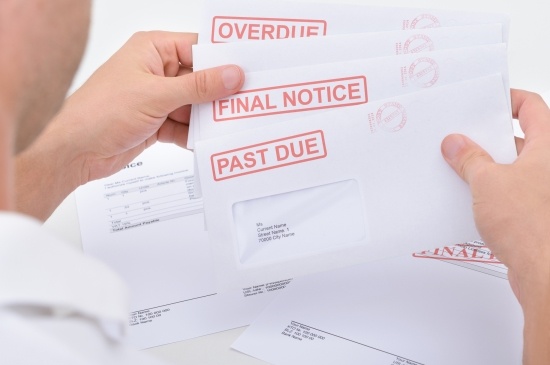There’s always a feeling of dread when a lost or misplaced invoice reappears or an invoice that has been forgotten about resurfaces. This dread and sinking feeling only deepens when you check your systems and realise that the invoice in question is still outstanding and is now a considerably overdue debt.
Overdue, late, or simply non-payment of invoices is a big problem in the UK, with the Federation of Small Business members reporting that approximately 36% suffer from cash flow problems due to debts owed.
In the case of outstanding invoices, the first thing that might run through your mind is how this happened, and Direct Route would always divert your attention to your current credit control processes and practices and how robust these really are.
The second thing to cross your mind will be, can you still collect the outstanding balance, and how long can a debt be chased for?
The good news is that depending on the invoice; there is still a chance you can get paid.
The legal time limit for invoices UK
Turning to the law, the Statute of limitations within the 1980 Limitation Act provides clear timescales and guidelines for how long an unpaid debt can be chased.
All business debts are covered by the Limitation Act 1980 with the Statute of Limitations applying to the payment of invoices and how long these invoices can be chased for payment, legally.
This time is six years from the date the invoice was first issued.
Great news, the feeling of dread is starting to subside, and you can now look to implement your process for unpaid invoice collection.
But before you do go in all guns blazing, there are a few considerations within The Limitations Act that you must be aware of.
These include:
Having regular contact
The Statute of Limitations only applies if you have had regular contact with your customer about the outstanding invoice.
If you haven’t maintained an appropriate level of contact, your customer can counterclaim under the same Act that the outstanding debt is, in fact, Statute Barred.
If it is then decided that the debt is indeed Barred, you can no longer collect on any outstanding monies.
In this instance, having effective credit control procedures is vital in helping with the required paperwork trails to stop debts from becoming Statute Barred.
Having all the information
You must have all and as much information as possible to support your case to continue to collect. For example, do you have delivery notes, receipt of order, any email correspondence, etc.?
Checking your facts
Before speaking to your customer, it’s important to check if the invoice is in dispute. For example, has the customer disputed the invoice in the past hence the reason payment has never been received? If the invoice has been disputed, it’s important to be aware that it would Barr the Limitation Act.
Giving your customer time
If this is an old invoice for you, then it will also be an old invoice for your customer, which means you should provide them with enough time to look into the matter at their end too. This is an outstanding debt from potentially years ago, so they too will have to trawl through their paperwork and speak to the relevant personnel.
Invoice debt collection
Ideally, no company should be chasing an outstanding invoice that is ten days past your agreed payment terms, let alone these invoices running into years overdue.
Collecting on time every time improves your cash flow and your business’s overall effectiveness; you can’t underestimate robust credit control procedures.
Outsourcing your credit control function to a specialist invoice collection agency like Direct Route helps free up your time to get on with the day job and provides you with confidence that invoices don’t slip through the net. (Check out our post on Outstanding Invoices giving you Headaches and what you can do to mitigate the risks).
Don’t leave unpaid invoices for long periods without acting, as the longer you leave them, the harder they will be to collect.
If you have outstanding invoices that are proving difficult to collect, call us on 0330 229 1991 and our friendly, professional collection team will be happy to help.
